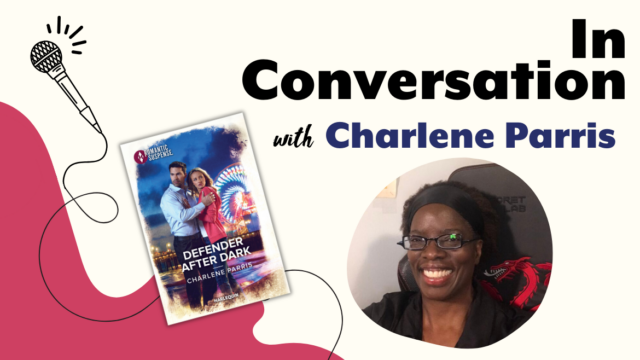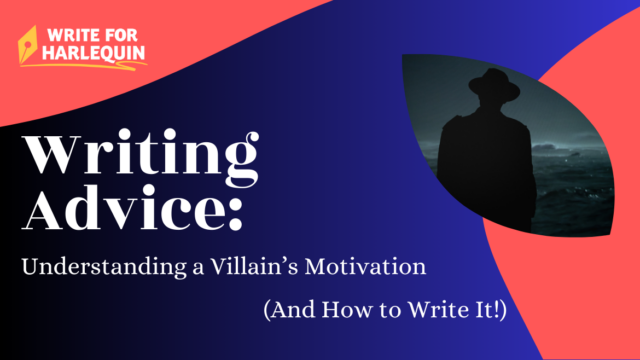Harlequin Executive Editor Mary-Theresa Hussey recently spoke with the NJ RWA chapter about making the perfect pitch. Here are her six tips!
First: Stay calm!
An editor or agent will not hold anything said at a pitch against you.
Nothing is decided permanently at a pitch. It all depends on the writing. And, as a confession, after five or six pitches in a row, they tend to blur together. Which is why editors or agents will often take be taking notes.
Most of all, keep in mind that pitching might be a necessary evil, but it is not an essential part of being published. You can become published without ever having done a pitch!
Second: Give us the information we need up front!
Editors love authors who come prepared! What is the title and the word count? Is this a full or partial manuscript? Do you know the line or imprint you’re targeting? Have you submitted to us, colleagues or others before?
These points can settle both of us down and get into the rhythm.
Third: Make the body of your pitch focused, appropriate, lively.
- Your job is to tease and tantalize the editor into wanting more, without giving too much information or going down the wrong path into confusion.
- Though knowing buzz words is great, don’t use so many the pitch sounds generic.
- Read movie précis or screenwriting tips to get the rhythm down.
- Read back cover copy and see what elements are used to sell books in that genre and for that publisher. But, remember that copy is not a pitch.
- We don’t need a lot of backstory or setup in a pitch. We want 5-7 sentences that capture the unique qualities in your story and your writing.
- Let us know what your characters want—and what is keeping them from getting it.
Fourth: Know your book!
As an editor, I’m expecting certain things to come out in the pitch—characters, settings, goals, conflicts, motivations, tone and so on.
Hopefully you’ve addressed most of these without us having to ask, but if not we might try to pull out a few more details in a conversation once we’ve gotten past the initial information.
Questions we might ask—or information we might try to get from you–include:
- What are the emotional hooks that are going to be compelling to a reader?
- How experienced or committed are you to this project?
- What are the key elements that make your writing and story shine?
- Why are these people so wrong for each other—and so right?
- Do you understand the line or genre you’re aiming for and have you achieved a consistent tone with it?
- For instance, if it’s targeted to American Romance, was there a sense of how the community and family interact with the hero and heroine?
- If it’s targeted to Desire, was there a sense of wealth and privilege from the hero?
- If you’re writing for Shivers, don’t try to fill your pitch with puns and jokes—your approach should reflect the intense and atmospheric story you’ve created.
Fifth: Have a few questions to spare.
Sometimes the pitch gets finished early because the editor or agent has asked for the project—or knows that it isn’t right for her.
That can be disappointing, but please remember that this is a reaction to the project—not to you! These days many publishers and agencies acquire with specific goals in mind, and sometimes a story can be brilliant but just not right for us.
However, if you do have some leftover time—hopefully for a good reason—it’s great to have a few extra questions prepared for the agent or editor.
You’ve got her at your disposal for another three minutes—take advantage! What is it that you’ve always wanted to know about the business from their side?
Is there something you want to know about the publishing process? The company? The editor or agent? Why this agency or publisher would be right for you? What exciting programs they are currently developing?
But if you don’t have a question, it’s perfectly acceptable to say thank you and leave. Don’t feel it is your responsibility to fill up the time.
Sixth: If asked, send it in!
Preferably within two weeks—you’ll want to give yourself a chance to review your manuscript, considering all that you have learned at the conference.
Taking around three months in cases where you were pitching a partial and need to finish it, or you need to make substantial revisions, is perfectly acceptable.
And editors will accept something beyond six months with a creative explanation! But the sooner you get it in, the likelier the editor will remember the enthusiasm she felt during the pitch session.
And then circle back to Step One–Stay Calm!
Good luck!
We’ll have a few more pitching tips coming through in the next few weeks, but the key thing to remember is that the pitch is only a first step–it’s all in the writing after that!
You can follow Mary-Theresa on Twitter–she’s @Matrice–or follow @HarlequinBooks and our other editors. Don’t forget to check out our Writing Guidelines for further information!




